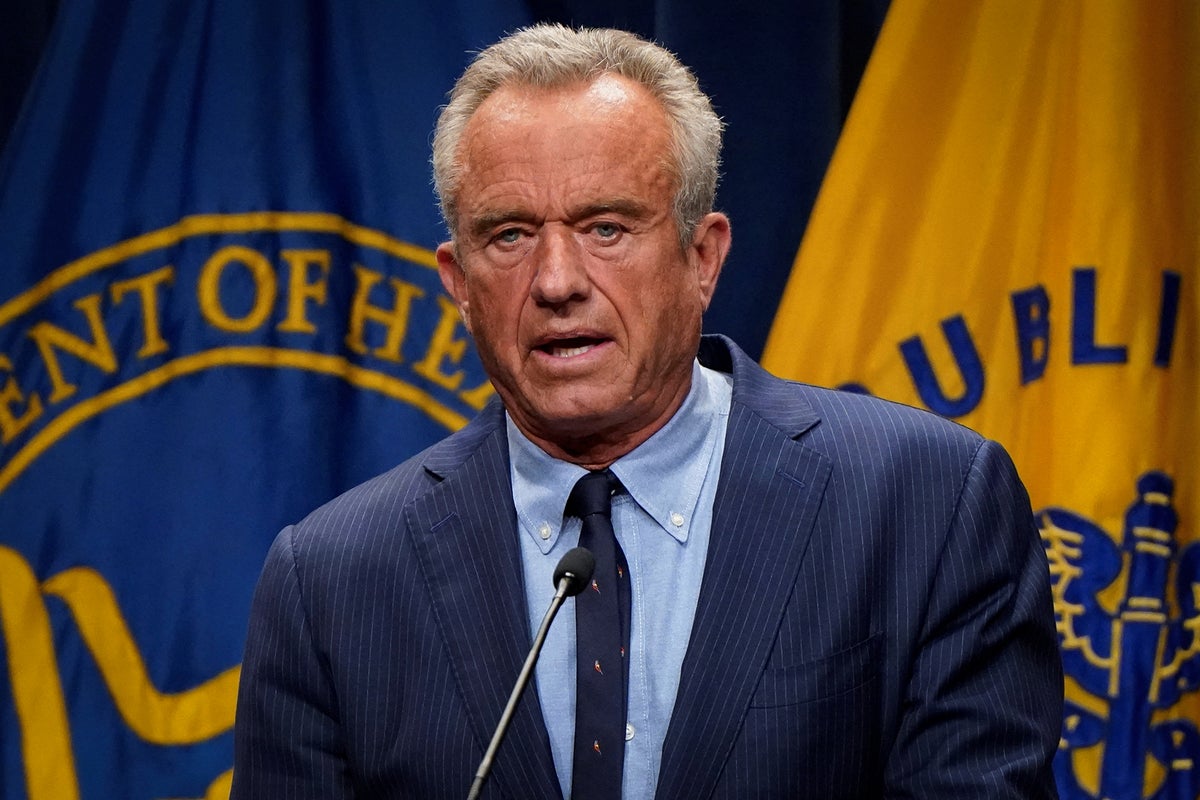On Wednesday, Health and Human Services Secretary Robert F. Kennedy Jr. spoke about the Center for Disease Control and Prevention’s new report that showed the number of children who received an autism diagnosis had increased from 1 in 36 to 1 in 31.
Kennedy said that the numbers showed that autism had become an “epidemic,” though the actual report from the CDC suggested that the increase in diagnoses came largely as a result of advances in screening.
“This epidemic denial has become a feature in the mainstream media. And it’s based on an industry canard,” he told reporters on Wednesday.
But just one month before, Kennedy’s department cut a grant that would have helped reduce suicide among autistic LGBT+ people.
Last year, the National Institutes of Health awarded a grant to Laura Graham Holmes, the professor at Hunter College in New York and a project leader for the ALIVE, which would have looked into interventions for sexual and gender minority autistic people.
Graham Holmes told The Independent she wanted to research this subject because of the fact that a large number of autistic people identify as LGBT+. Numerous studies have shown a significant overlap between autistic and transgender identity. Many autistic people also identify as nonbinary.
“What we know about this this group is that there are higher rates of mental health conditions,” she said. “So I’ve done some research using electronic medical records and found that, you know, we already know that autistic people have higher rates of depression and anxiety.”
Graham Holmes said that she learned about the grant being terminated last month when her dean told her that it would be canceled.
“My mentors on this grant had had grants be terminated already, so I knew that it was a possibility,” she said. “I had some hope that they might spare training grants. Because to me, that, you know, that’s an investment in our country’s future.”
The Department of Health and Human Services responded to The Independent in an email referring to the department’s Tracking Accountability in Government Grants System, which is a database of grants awarded by HHS’s various bureaucracies.
Graham Holmes emphasized how many autistic LGBT+ people have little contact with their families and face high rates of suicide.
“This is why I set out to create this alive intervention I have, like, an approach of working with autistic people to create the intervention, which is then co-facilitated with an autistic person,” she said, adding that she had just begun to interview autistic people.
“I hired my autistic research assistant, who’s a lovely, you know, bright, insightful person,” she said. “I was gonna mentor a [post-doctoral fellow]. She was really excited to start in August. These are early-career scientists, their careers have been affected. Now she’s looking for another position.”
Including an autistic person in the grant was not charity but rather done in part with the mission of the grant.
“This is a career development award to provide mentorship and advanced training toward me developing into a productive investigator focused on patient oriented research,” she said. Graham Holmes added that she hoped to work with the autistic community to come up with “meaningful interventions” based on what autistic people said they need.
“And so, we’re investing billions of dollars into understanding autism, and I was going to be translating some of that hard, you know, our knowledge into supports that help our communities,” she said.
In recent months, researchers across the country have seen their grants cut in response to the Trump administration’s attempts to roll back diversity, equity and inclusion efforts as well as Elon Musk’s Department of Government Efficiency.
“This award no longer effectuates agency priorities,” many of these letters say. “Research programs based on gender identity are often unscientific, have little identifiable return on investment, and do nothing to enhance the health of many Americans.”
The Trump administration has also targeted the transgender community with an executive order saying that the government will only recognize a person’s gender as it is defined at birth.
“Many such studies ignore, rather than seriously examine, biological realities,” the executive order says.
Graham Holmes said that this will not only hurt her study, but that she was also researching on another paper on autistic sexual abuse victims.
“Another colleague had to pull out of that paper because she was worried about, I don’t know, like, basically the term ‘sexual’ in her work,” she said. “Now we’re not able to find out, what kind of services to sexual abuse victims get, and are they different from from non-autistic sexual abuse victims.”



